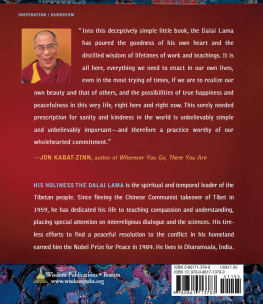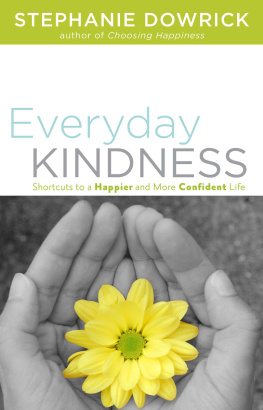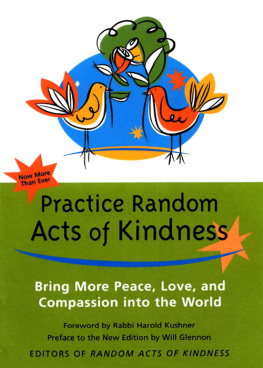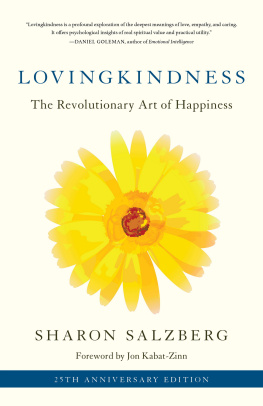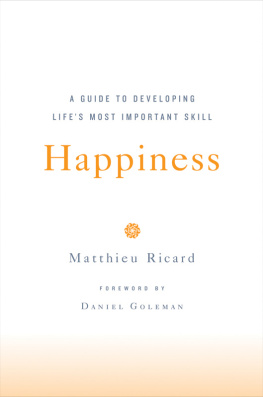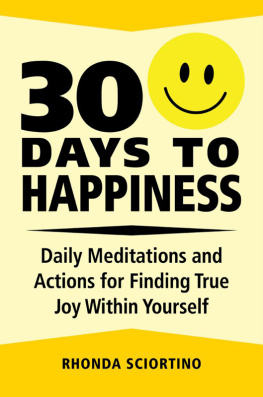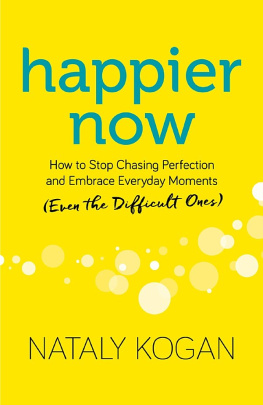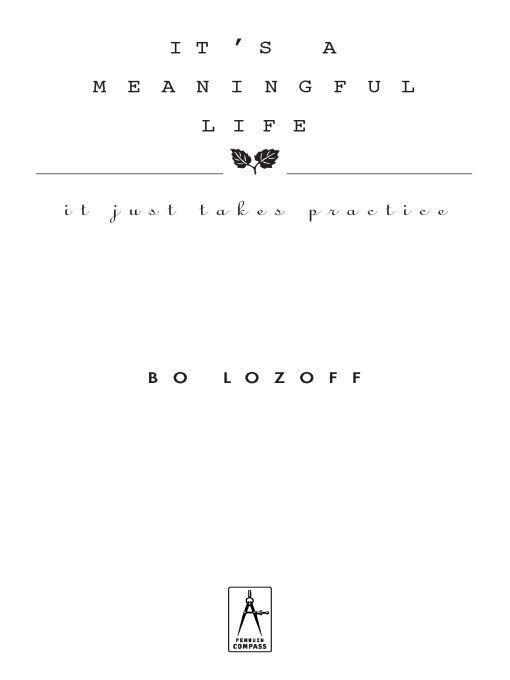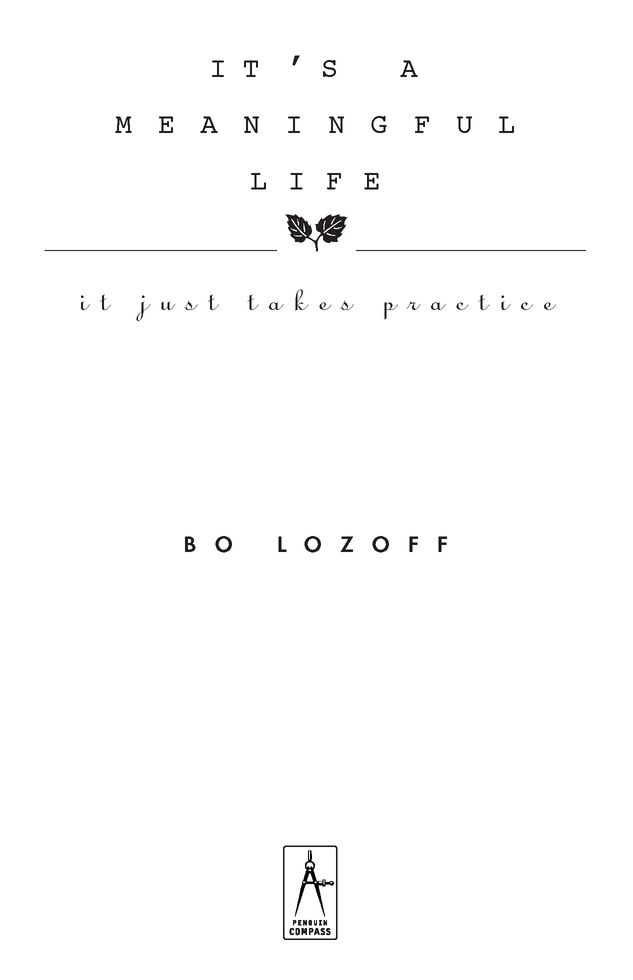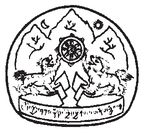Table of Contents
PENGUIN COMPASS
ITS A MEANINGFUL LIFE
Bo Lozoff is the cofounder of the Human Kindness Foundation and its award-winning Prison Ashram Project. He holds an honorary doctorate from the Chicago Theological Seminary and is a recipient of the prestigious Temple Award for Creative Altruism. He has lectured in hundreds of prisons, universities, churches, and spiritual centers around the world and his work has been featured in many national publications. Named by Utne Reader as one of Americas 100 Spiritual Visionaries, he lives outside Durham, North Carolina.
For Sita, my co-conspirator
in the Great Charade
Acknowledgments
Hats off to Robin Dellabough, Lisa Di Mona, and Karen Watts at Lark Productions for envisioning this book long before I did. And hearty thanks to my editor, Janet Gold stein, at Viking/Arkana, for stretching the usual ways of producing a book in order to make this whole process a spiritual practice right from the start.
My family and friends at Kindness House took on a lot of extra work to afford me the time to work on this book. I love and appreciate them all. My son Josh, especially, poured his heart into compiling much of this material for nearly a year. Anyone who benefits from this book can thank him first.
And of course, to the saints and sages of all times and places, whose presence and energy inspire my every breath, I bow low and beg forgiveness for any ignorance or vanity seeping through in these pages. Jaya! Victory to us all.
Foreword
by His Holiness the Dalai Lama
I believe that human nature is fundamentally gentle and creative and that it is important for us to recognize this. If we examine the nature of our lives, we find that from the moment of birth until we die, human affection plays a crucial role in ensuring not only that we feel satisfied, but even that we survive. As social animals, we human beings not only depend on each others support simply to live, but also have a deep-seated desire to communicate with one another, to express our feelings and share our experiences. On the one hand, our need to live together, like members of any family, requires that we show each other tolerance and mutual support. On the other, our diversity is a source of strength and creativity.
In recent times, civilization has made many advances, but we continue to be troubled by problems because of our undue emphasis solely on material development. We have become so engrossed in its pursuit that, almost without knowing it, we have neglected to foster the most basic human needs for love, kindness, cooperation and caring. And yet the development of human society is based entirely on people helping each other. If we lose this essential humanity, what is the point of pursuing only material improvement?
Because the very purpose of life is to be happy, it is important to discover what will bring about the greatest degree of happiness. Our experiences, whether pleasant or miserable, tend to be either mental or physical. Generally, it is the mind that exerts the greatest influence on most of us. Therefore, we should devote our most serious efforts to bringing about mental peace. And in my own limited experience I have found that the greatest degree of inner tranquility comes from the development of love and compassion. The more we care for the happiness of others, the greater is our own sense of well-being. Cultivating a close, warm-hearted feeling for others automatically puts the mind at ease. This helps remove whatever fears or insecurities we may have and gives us the strength to cope with any obstacles we encounter. It is the ultimate source of success in life.
At every level of society from the family up to international relations, the key to a happier and more successful world is the growth of compassion. We do not need to become religious, nor do we need to believe in an ideology. All that is necessary is for each of us to develop our good human qualities.
In this book Bo Lozoff elaborates on these themes. He explains how if we wish to improve the world, we can best start by improving ourselves and enhancing our own innate positive qualities. Despite the despair and cynicism we may see around us, if we make the effort we can transform this precious opportunity into a meaningful life. Amongst the advice the book contains are explanations of the ancient meditative practices recommended by saints and sages, but the author does not neglect down-to-earth suggestions, like simply turning off the television more often, for creating peace and quiet in our lives. This book deals with profound issues in a simple and accessible way. I am confident that anyone of any faith or none can benefit from the universal ideas and realistic advice it contains for improving their own life and the life of the world.
December 2, 1999
Introduction: Lets Not Miss the Meaning of Life
You and I live in an age when the ordinary seems extraordinary: to take time to watch the sun rise, to enjoy a peaceful cup of tea while listening to music, to eat breakfast or dinner with all the members of our family together at one time (and actually enjoy each others company). Such simple, human moments are romanticized in commercials for their nostalgia value because they have become so rare today.
And we live in an age when the extraordinary seems ordinary: a relentless pace that would bring Alexander the Great to his knees; a level of materialism and creature comforts that would exceed Cleopatras wildest dreams; a degree of self-absorption that would make Narcissus blush. Tens of millions of us who cant keep up, or who become understandably confused or depressed, are prescribed powerful drugs to help us fall back into place. This is not just extraordinary, it is incredible.
In our era, even ancient spiritual practices may be used not so much for touching the sacred but for reducing stress so that we can keep up a truly soul-destructive, frenetic level of activity. Americans, for example, turn to disciplines like meditation or yoga more often through the advice of their doctors than through the teachings of sages.
When we dare to slow down and ask ourselves some probing questions, how well do our answers satisfy us? Are we deeply fulfilled? Do we feel our lives have a clear sense of purpose? Do we see our place in the great scheme of things? Do we have confidence in the future of our society? Most of us are certainly not lazy; we expend a tremendous amount of effort in many directions. But toward what ends?
It is as if a king had sent you to a country to carry
out one special, specific task. You go to the coun try and you perform a hundred other tasks, but
if you have not performed the task you were sent


